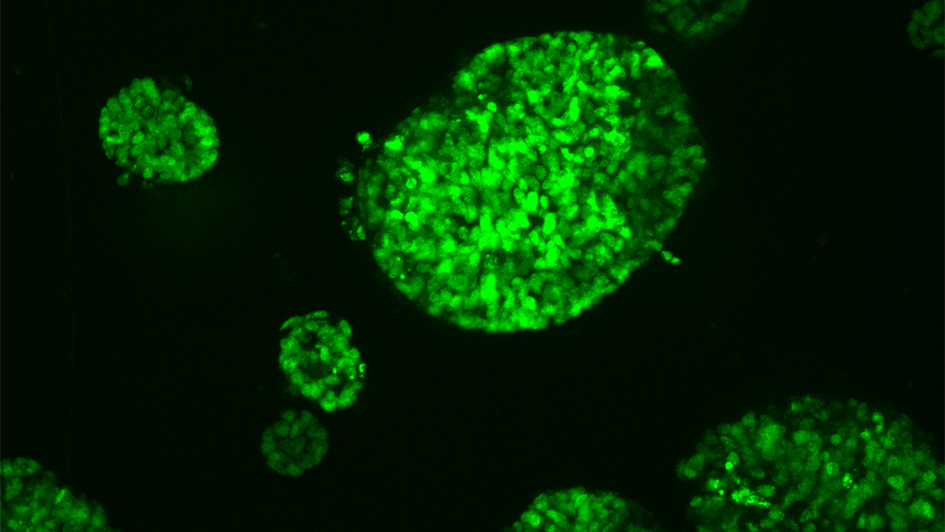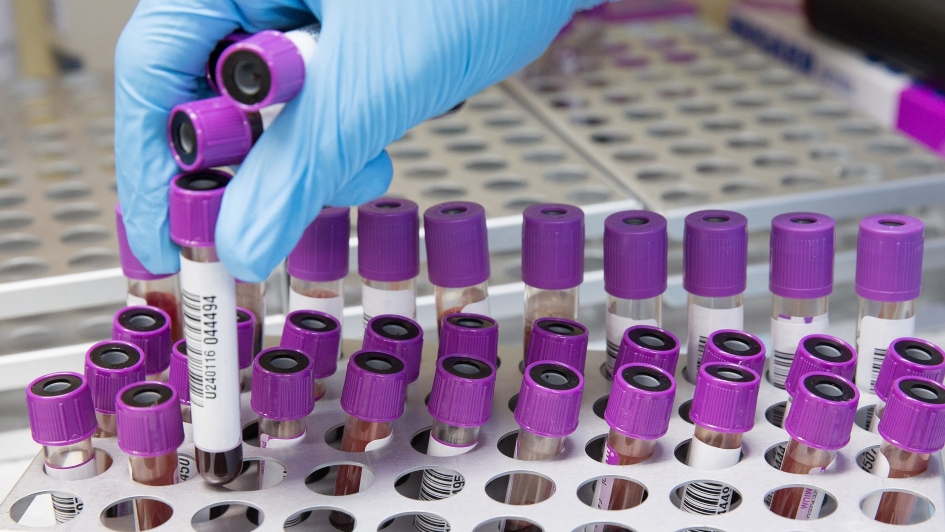Genomics
Advances in the technology to read people’s DNA have made it so much faster and cheaper that we can now read the genetic code of many different genes at once, increasingly by sequencing the entire genome of a patient or their cancer.
Comparing a genome sequence from a tumour cell with one from a healthy cell allows our researchers to pinpoint the genetic changes that are involved in causing cancer, helping us to create new and improved treatments. We can also learn about genetic changes people inherit which may increase their risk of cancer, and this can lead to new ways of preventing the disease.
This page highlights recent news stories, blog posts and videos that concern the use of genomics technologies in cancer research.
Related pages
Recent stories on genomics technologies in cancer research
945x532.png?sfvrsn=310c2acf_2)
New protective role of gene frequently mutated in cancer uncovers potential therapeutic target
New research into how cancer develops has uncovered more detail about the importance of the centromere, a region of human DNA that has a critical role in effective cell division.
-mucinous-ovarian-tumour---945x532.jpg?sfvrsn=5e9bb32b_2)
Smarter chemotherapy approach could delay drug resistance in ovarian cancer
Adaptive chemotherapy – a personalised approach to giving chemotherapy – can prolong survival in lab models of ovarian cancer, according to new results published in the journal Cancer Research.
).jpg?sfvrsn=83bdab30_1)
Genetic study links common form of testicular cancer to rare variants in cell structure genes
The largest study to date of most common form of testicular cancer has uncovered a possible link between disease risk and variations in the genes controlling cell shape and movement.

ICR scientists unveil AI-powered platform that helps researchers speed up biomarker discoveries for personalised cancer treatment
An ICR team has unveiled a cutting-edge research platform powered by artificial intelligence (AI) that will revolutionise cancer research by allowing researchers to integrate and analyse large and complex clinical trial datasets, speeding up the discovery of new cancer biomarkers.

£5.5m research funding to transform bowel cancer care
Scientists from The Institute of Cancer Research, London, are part of a team of international researchers who have secured £5.5million in funding to find smarter, kinder treatments for people living with bowel cancer.

Breast cancer risk model provides reassuring data for those with family history of disease after short-term HRT use
Hormone replacement therapy taken at age 50 for up to 5 years only modestly increases the risk of breast cancer, even for women with a strong family history of the disease, according to a new risk model published in the British Journal of General Practice.

Scientists create new way to predict bowel cancer risk in people with inflammatory bowel disease
Scientists at The Institute of Cancer Research, London, have found a way to identify people with inflammatory bowel disease (IBD) who are at the highest risk of developing bowel cancer.

Genetic testing for Lynch Syndrome prevents cancers being missed
Genetic testing to identify women with Lynch Syndrome is likely to need to increase dramatically to ensure that carriers are not missed, a new analysis by ICR researchers has found.